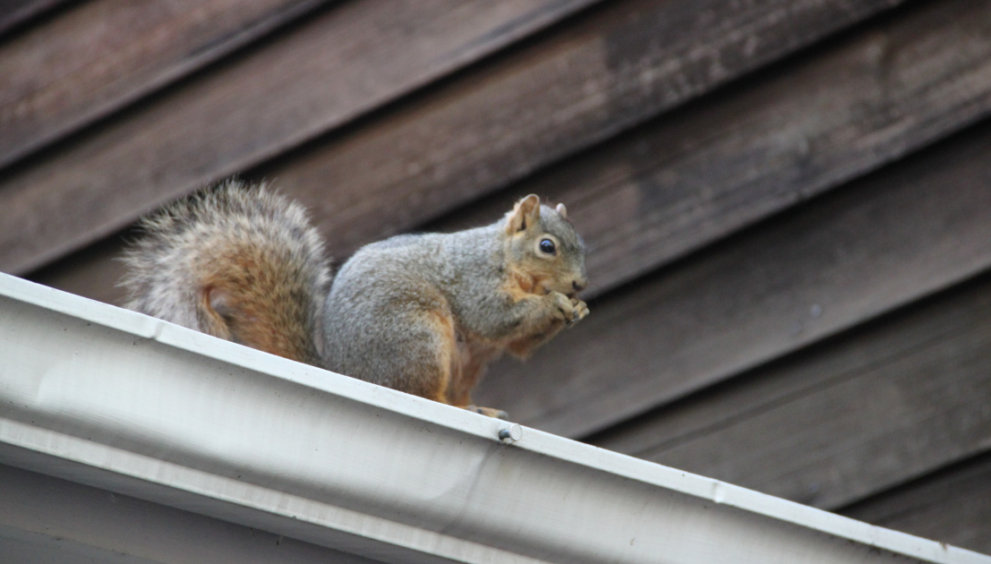Squirrel-Proof Your Home: Effective Strategies to Keep These Pests Away

Squirrels can be an adorable sight in nature, but when they invade homes, they become a nuisance. Preventive measures such as sealing entry points, using squirrel-resistant feeders, and securing trash bins can be taken to effectively squirrel-proof a home. Understanding the behavior of these animals is vital to implementing successful deterrents.
Regular maintenance checks around the home can reveal potential weaknesses, such as gaps in vents or holes in screens, that squirrels might exploit. Homeowners can also benefit from natural repellents discouraging squirrels from approaching their living spaces. By adopting a proactive approach, it is possible to protect both property and peace of mind.
Taking these steps helps keep squirrels at bay and promotes a healthier environment by reducing the risk of property damage and possible health hazards. Homeowners can reclaim their space and enjoy a squirrel-free home by learning effective strategies.
Understanding Squirrel Behavior
Squirrels are highly adaptable creatures that often seek shelter and food in residential areas. Knowing their habits and preferences can help prevent them from entering homes effectively.
Habitat and Diet
Squirrels typically thrive in wooded areas but can adjust to urban environments. They prefer habitats with abundant trees, which serve as nesting sites and food sources.
Their diet mainly consists of nuts, seeds, fruits, and occasionally insects. In the fall, they gather and store food, which makes them particularly active as they prepare for winter.
Squirrels are notorious for raiding bird feeders and emptying gardens. Homeowners should consider this when planting and maintaining landscaping.
Common Entry Points into Homes
Squirrels are agile climbers who often find their way into homes through various entry points. Roofs, attics, and chimneys are common access routes.
Small openings around vents, eaves, and even plumbing entries can serve as gateways. Inspecting the exterior of homes for any gaps exceeding 1/4 inch in size is essential.
Prevention Tips:
- Seal Gaps: Fill holes or cracks with steel wool or metal flashing.
- Trim Trees: Keep branches at least 10 feet from rooftops.
- Secure Trash Cans: Use lids that lock to deter scavenging.
Homeowners can significantly reduce the likelihood of squirrel infestations by being proactive about these entry points.
Squirrel-Proofing Techniques
Effective squirrel-proofing involves securing the exterior, reinforcing entry points, and using deterrents to keep squirrels at bay. These techniques help homeowners create a barrier between their living space and potential intruders.
Securing the Exterior
To begin squirrel-proofing, focus on the home’s exterior. Trim back tree branches within six to eight feet of the roof to eliminate easy access points for squirrels.
Next, inspect gutters and vents. Cover these areas with metal mesh or screens. Properly secured vents not only prevent squirrel entry but also help maintain ventilation.
Additionally, store bird feeders at least ten feet away from your house. Squirrels are attracted to birdseed, which can lead them directly to your home—secure trash cans with tight-fitting lids to eliminate another food source.
Reinforcing Entry Points
Squirrels can access homes through even the smallest openings, making checking for gaps and holes around doors, windows, and the foundation essential. Use caulk to seal cracks and gaps, ensuring no entry point.
Install chimney caps and repair damaged roof shingles. A sturdy chimney cap prevents squirrels from entering through the flue. Regular roof maintenance also helps identify vulnerable points early.
Consider professional squirrel removal services in Euless if there is a current infestation. Professionals can assess the property and suggest measures to reinforce entry points effectively.
Using Deterrents
Incorporating deterrents can be an effective strategy for squirrel-proofing. Various repellents, including natural options like peppermint oil or commercial sprays designed to deter rodents, are available.
Motion-activated sprinklers can startle squirrels, encouraging them to stay away from gardens and yards. Ultrasonic devices that emit sounds unpleasant to squirrels are also an option to explore.
Finally, ensure that bird feeders use squirrel-proof designs. Seed trays with weight-sensitive perches can prevent squirrels from accessing food. Implementing a combination of these deterrents can create an effective barrier, maintaining a squirrel-free environment.
Regular Maintenance and Monitoring
Maintaining a squirrel-proof home requires consistently identifying and addressing any new vulnerabilities. Regular inspection and clean-up deter squirrels and minimize opportunities for them to invade the property.
Inspecting for New Vulnerabilities
Regular inspections are essential for identifying potential entry points for squirrels. They often enter homes through gaps or openings in roofs, attics, and walls.
Key areas to inspect include:
- Roofing: Examine for missing shingles or gaps.
- Chimneys: Ensure caps are securely fitted.
- Ventilation: Check for unsealed vents.
After storms or high winds, it’s crucial to reassess these areas. Squirrels can exploit even minor damages. Noticing changes promptly helps in taking corrective actions before they become significant issues. Regular maintenance checks can effectively stop squirrels from entering homes.
Routine Clean-Up Strategies
A crucial part of keeping a home squirrel-proof involves regular clean-up. Eliminating food sources is vital.
Strategies include:
- Secure Trash: Use animal-proof containers.
- Clean Up Leftovers: Remove pet food and bird seed outside.
- Trim Trees: Maintain a distance between branches and roofs.
In addition, areas such as attics and basements should be kept tidy and clutter-free. Squirrels are attracted to nesting materials like insulation, paper, or old clothing, and regular clean-up can reduce the likelihood of attracting them to the property.
For effective squirrel removal, you should contact Critter Stop at (214) 234-2616 for a free inspection. They are known for high-quality work and exceptional customer service, making them a reliable choice for Euless wildlife management and pest control.






















































































































































































































































































































































































































































































































































































































































































































































































































































































































































































































































































































































































































































































































































































































































































































































































































































































































































































































































































































































































































































































